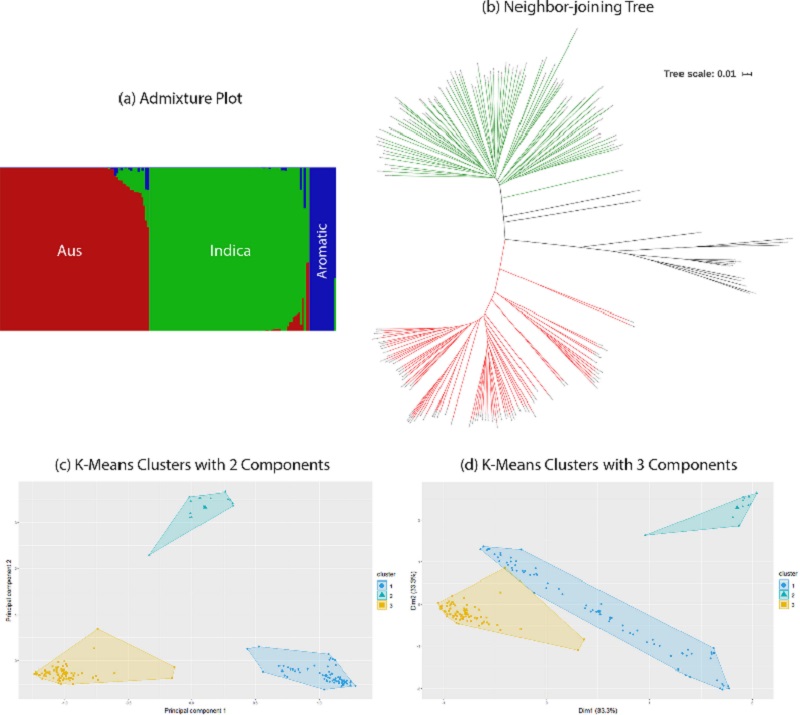Genetic diversity with respect to salt tolerance identified by genome wide study of 176 Bangladeshi traditional rice accessions and published in prestigious journal, PLoS One

Genetic diversity with respect to salt tolerance identified by genome wide study of 176 Bangladeshi traditional rice accessions and published in prestigious journal, PLoS One,
From the Plant Biotechnology Laboratory at The Department of Biochemistry and Molecular Biology, authored by Md Nafis Ul Alam, G. M. Nurnabi Azad Jewel, Tomalika Azim and Professor Zeba I. Seraj
https://doi.org/10.1371/journal.pone.0259456
The researchers correlated 11 phenotypes affected by salt stress with the DNA sequence of 176 diverse traditional rice accessions selected from all over Bangladesh. The phenotypic responses were correlated with the genetic effects of the DNA sequence variation on a genomic scale. Some unique genetic loci of these rice accessions were identified which are responsible for fighting salt stress. Some important genes were mapped within the identified genetic loci which could be important for salt tolerance. Integrative analysis indicated potential novel functionality for a number of candidate genes. These findings will usher novel avenues for the bioengineering of high yielding crops of the future fortified with genetic defenses against salt stress.